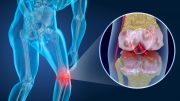
Researchers have identified how a highly aggressive form of breast cancer can evade one of the most powerful and effective drugs used to treat it.
Researchers identify mechanisms of resistance to drug for triple-negative breast cancer.
Massachusetts General Hospital (MGH) researchers have identified for the first time how a highly aggressive form of breast cancer can evade one of the most powerful and effective drugs used to treat it, reporting their findings in Cancer Discovery, a journal of the American Association for Cancer Research. The findings could help improve therapy and ultimately prolong survival for patients with metastatic triple-negative breast cancer.
Triple-negative breast cancer (TNBC) is notoriously difficult to treat because it lacks the receptors or “docking sites” for the hormones estrogen and progesterone and the growth factor HER2, all three of which can be targeted with effective cancer therapies. Standard chemotherapy regimens provide limited benefit against TNBC, and patients with metastatic disease – disease that has spread to other parts of the body – have a very poor prognosis and short survival.
But as Aditya Bardia, MD, MPH, from the Mass General Cancer Center and colleagues previously reported, patients with metastatic TNBC treated in a large clinical trial with the compound sacituzumab govitecan (SG; tradename Trovdely) lived nearly twice as long as patients treated with chemotherapy alone.
SG is an antibody-drug conjugate, consisting of an antibody targeted to a receptor called Trop2 found on the surface of most breast cancer cells, plus a cancer-killing compound known as SN-38 (topoisomerase I inhibitor). SG is designed to specifically seek out breast cancer cells and deliver SN-38 as its toxic “payload.”
Yet some patients with metastatic TNBC either do not benefit from treatment with SG or have an initial response to treatment but then develop drug-resistant disease.
Now, Bardia, with Leif Ellisen MD, PhD, director of Breast Medical Oncology at Mass General Cancer Center, and MGH colleagues, report that they have identified for the first time two separate alterations in the genome of TNBC cells that allow them to develop resistance to the antibody-drug conjugate in patients with triple-negative breast cancer.
“We undertook a study to look at the mechanisms of acquired resistance,” says Ellisen.
“In terms of de novo resistance, the data supported prior studies which suggested that the complete absence of Trop2 could be an important predictor of primary resistance. But the really remarkable part of the study had to do with acquired resistance,” he says.
When they studied the genomic profiles of tissues sampled both before treatment and after disease progression, they found that in multiple metastatic lesions from one woman who had an initial robust response to SG but later had disease progression and died from the disease, there were different molecular mechanisms of resistance in different metastatic lesions.
“All of the resistance mechanisms were driven by genetic changes in the metastatic tumor cells that were not present in the primary tumor. Remarkably, in one set of metastatic lesions there was a mutation in the Trop2 target of the antibody, and in another set of lesions there was actually a mutation in the target of the cytotoxic [cell-killing] payload,” says Ellisen.
“This is the first report describing mechanisms of acquired resistance to sacituzumab govitecan,” adds Bardia. “The findings have potential clinical significance for guiding antibody-drug conjugate sequencing for patients with breast cancer.”
Reference: “Parallel genomic alterations of antigen and payload targets mediate polyclonal acquired clinical resistance to sacituzumab govitecan in triple-negative breast cancer” by James T. Coates, Sheng Sun, Ignaty Leshchiner, Nayana Thimmiah, Elizabeth E. Martin, Daniel McLoughlin, Brian P Danysh, Kara Slowik, Raquel A. Jacobs, Kahn Rhrissorrakrai, Filippo Utro, Chaya Levovitz, Elyssa Denault, Charlotte S Walmsley, Avinash Kambadakone, James R Stone, Steven J. Isakoff, Laxmi Parida, Dejan Juric, Gad Getz, Aditya Bardia and Leif W Ellisen, 17 August 2021, Cancer Discovery.
DOI: 10.1158/2159-8290.CD-21-0702
The study was supported by grants from the National Institutes of Health, the DoD Breast Cancer Research Program, the Terri Brodeur Breast Cancer Foundation Fellowship, MGH ECOR Fund for Medical Discovery Fellowship, Susan Eid Tumor Heterogeneity Initiative, Tracey Davis Breast Cancer Research Fund and by the Broad/IBM Cancer Resistance Research Project.
AB has received research support (paid to institution) from Genentech, Novartis, Pfizer, Merck, Sanofi, Radius Health, Immunomedics, Inc., Mersana, Innocrin, and Biotheranostics Inc.; has served as a consultant to Bio theranostics Inc., Pfizer, Novartis, Genentech, Merck, Radius Health, Immunomedics, Inc., Spectrum Pharma, Taiho, Sanofi, Daiichi Pharma/AstraZeneca, Puma, Philipps, and Eli Lilly; and has received travel support from Biotheranostics Inc., Pfizer, Novartis, Genentech, Merck, Radius Health, Immunomedics, Inc., Spectrum Pharma, Taiho, Sanofi, and Philipps. DJ has served as a compensated consultant for Genentech, C4 Therapeutics, Blueprint Medicines, Nuvalent, Turning Point Therapeutics, and Elevation Oncology; received honorarium and travel support from Pfizer; received institutional research funds from Hengrui Therapeutics, Turning Point Therapeutics, Neon Therapeutics, Relay Therapeutics, Bayer, Elevation Oncology, Roche, and Novartis; received CME funding from OncLive, MedStar Health, and Northwell Health. GG receives research funds from IBM and Pharmacyclics, and is an inventor on patent applications related to MuTect, ABSOLUTE, MutSig, MSMuTect, MSMutSig, POLYSOLVER and TensorQTL. He is also a founder, consultant, and holds privately held equity in Scorpion Therapeutics. IL is a Consultant for PACT Pharma, Inc. and eNOV1, LLC KR, FU, CL, and LP are employees of IBM. The other authors declare no potential conflicts of interest.









Be the first to comment on "Discovery Could Help Improve Therapy and Prolong Survival for Patients With Triple-Negative Breast Cancer"